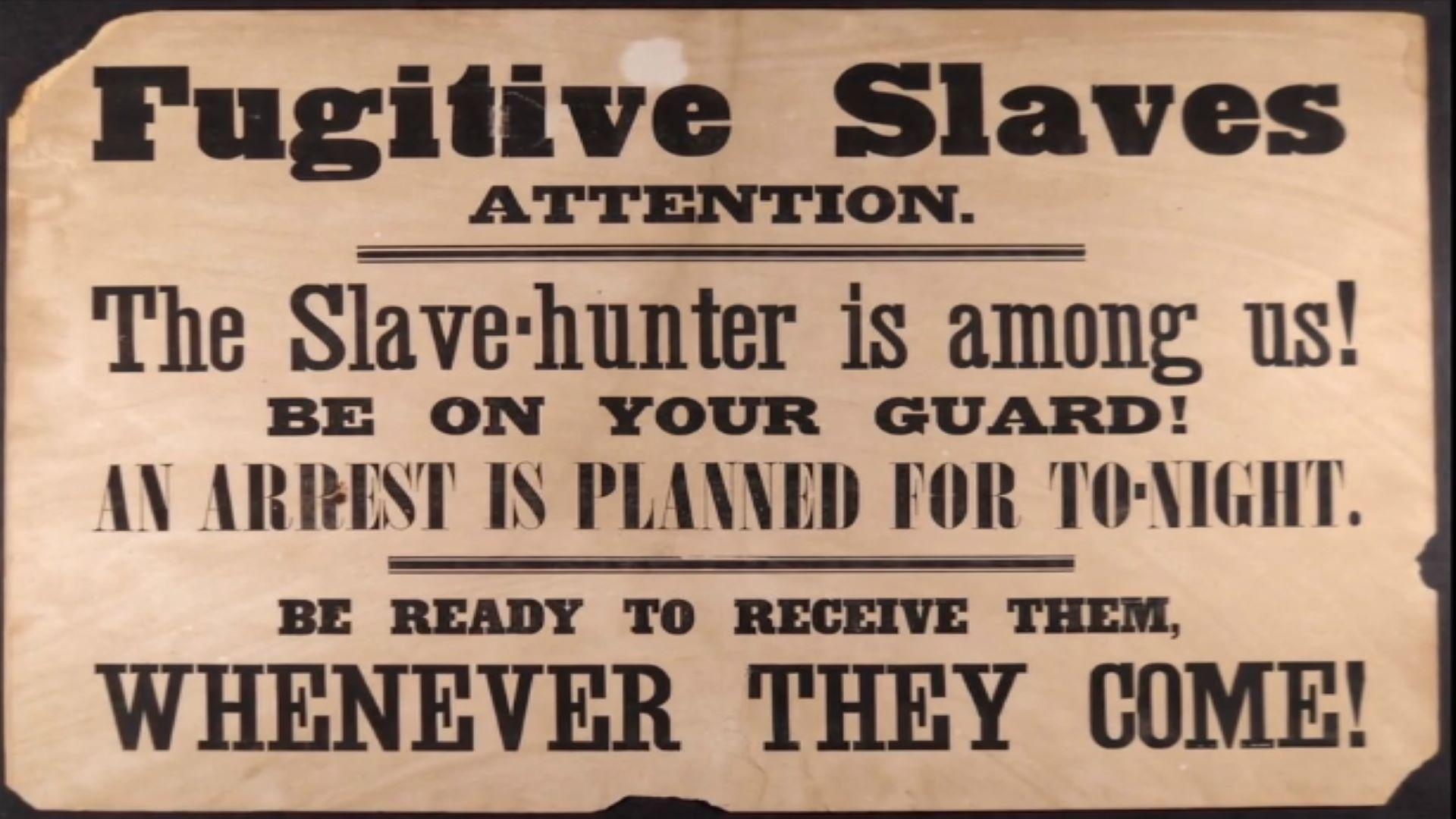The Fugitive Slave Act of 1850, a piece of legislation passed in the United States as part of the Compromise of 1850, aimed to strengthen the enforcement of the Fugitive Slave Clause of the U.S. Constitution. Ironically, despite its purported goal, the act further escalated tensions between the North and the South, exacerbated sectional divisions, and played a significant role in the lead-up to the American Civil War.

Image: www.pbslearningmedia.org
One of the glaring ironies of the Fugitive Slave Act lay in its professed purpose to restore tranquility and national unity. However, its passage did the exact opposite. The act inflamed abolitionist sentiments in the North and provoked a wave of resistance and defiance, further polarizing the country. Its harsh provisions, such as allowing for the seizure and return of alleged fugitive slaves even from free states, catalyzed widespread outrage and civil disobedience.
Expanding Federal Reach Into the North
The Fugitive Slave Act of 1850 extended the authority of federal marshals and commissioners into free states. This provision ironically contradicted the principles of states’ rights and local autonomy championed by Southerners in other contexts. The act effectively federalized the enforcement of slavery, a direct intervention by the national government into matters traditionally left to individual states.
Burden of Proof Shifted to Alleged Fugitives
Another ironic aspect of the Fugitive Slave Act was the shifting of the burden of proof onto the alleged fugitive slave. The accused individual had to prove their free status, a difficult task given the prevalence of racism and discrimination. This reversal of legal tradition, placing the onus of proof on the accused, was a stark departure from fundamental principles of Anglo-American jurisprudence and further inflamed Northern abolitionists.
Rewards for Slave Catchers
The Fugitive Slave Act offered substantial financial incentives to individuals who apprehended and returned alleged fugitive slaves. This provision ironically created a lucrative industry for professional slave catchers, further commercializing the institution of slavery. In fact, some unscrupulous individuals even went to the extent of kidnapping free Black people in the North and selling them into slavery, exploiting the ambiguities of the law for personal gain.

Image: ar.inspiredpencil.com
Free Speech Limitations
The Fugitive Slave Act also infringed upon freedom of speech and press in the North. Abolitionist newspapers and activists faced severe penalties for obstructing the return of fugitive slaves or inciting resistance to the law. This suppression of free expression, a cornerstone of American democracy, was deeply ironic given the simultaneous efforts to preserve the institution of slavery, which denied basic freedoms to millions of people.
What Was Ironic About The Fugitive Slave Act
Conclusion
The Fugitive Slave Act of 1850 stands as a glaring example of the ironic complexities of American history. While ostensibly aimed at maintaining national unity, it further alienated the North and contributed to the growing rift between the two sections. Its harsh provisions, including the federalization of slavery, shifting of the burden of proof, rewards for slave catchers, and limitations on free speech, epitomized the hypocrisy and contradictions of a nation grappling with the fundamental issue of human bondage. Ultimately, the Fugitive Slave Act played a pivotal role in igniting the flames of resistance and conflict that led to the American Civil War, a tragic chapter in American history.
